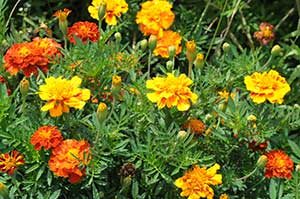Do Mosquito Repellents Really Work?
 When it comes to mosquito repellents, there’s one big question – how effective are they? It depends on several factors: where you are, what activity you’re doing, who is around you, and whether you’re using chemical or natural repellents.
When it comes to mosquito repellents, there’s one big question – how effective are they? It depends on several factors: where you are, what activity you’re doing, who is around you, and whether you’re using chemical or natural repellents.
There are pros and cons for each type of repellent, as well as many myths and preconceived notions about them and their effectiveness. Only you can know for sure which type will work best for you, but it always helps to have facts to back up your decision.
Natural Mosquito Repellents – How Effective Are They?
These have gained traction recently among the eco-conscious as a response to what they see as an overuse of pesticides and other chemicals in the US and around the world. People didn’t have chemical sprays 100 years ago, they argue, so why should we use them now? There are a lot of different methods for repelling mosquitoes naturally, but is natural mosquito repellent effective as professional mosquito repellent?
Natural mosquito repellents are typically essential oils such as lemon, eucalyptus, cinnamon or thyme. The theory is that mosquitoes, which hunt using both sight and smell, won’t want to approach such powerful odors.
Natural Repellent Pros
- Safer for people, especially children and pregnant women
- Less likely to cause skin irritation in sensitive individuals
- Less damaging to clothing
- Often come with a pleasant smell
Natural Repellent Cons
- Not regulated by the FDA
- Generally less effective than products containing DEET or picaridin
- Certain essential oils are known to cause allergic reactions (Never use undiluted essential oils on your skin – for some, it may cause a severe allergic reaction. Instead, dilute essential oils using a mild carrier oil (such as almond or sunflower oil). The key is to find the right balance – three to five drops of essential oil per fluid ounce of carrier oil is suggested).
Ready For a Free Pest Control Quote?
Click the button below to leave your information and we’ll be in touch with a free quote!
Are Chemical Mosquito Repellents Safe?
When applied following the manufacturer’s instructions, yes. Each repellent on the market must pass rigorous FDA and EPA standards before it can be sold to the general public. Countless scientific professionals are working to perfect these formulas and strike the ideal balance between safety and effectiveness.
When discussing these options, you’ll undoubtedly consider products with DEET, or diethyltoluamide. Many common insect repellents contain DEET and are legally required to mark the concentration on the label. The CDC typically recommends 30 to 50 percent DEET to effectively prevent the spread of mosquito-borne illness. While DEET has been proven safe for human use and is generally considered the most effective mosquito repellent currently out there, it’s not without its downsides and should be used carefully.
Chemical Repellent Pros
- Longer, more reliable protection than natural repellents
- Must undergo rigorous testing to attain CDC approval
- The choice between DEET and picaridin means you can test both to see which works for you
Chemical Repellent Cons
- May cause skin irritation or rash even when used properly
- Young children, pregnant women, elderly people, and people with compromised immune systems should consider avoiding repellents with DEET
What’s the Best Mosquito Repellent for Yards?
By far, the best mosquito “repellent” for your yard is eliminating standing or stagnant water. Mosquitoes require water to lay eggs. If you remove the water, you remove their ability to breed on your property. For more on that, check out our article on how to prevent mosquitoes from breeding in your yard.
One other thing you might want to consider is stocking your garden with plants that have mosquito-repellant properties. These plants include:
- Citronella grass
- Lavender
- Marigolds
- Mint
- Rosemary
- Sage
Professional Mosquito Repellent Services to Protect Your Home
When it comes to preventing mosquito bites, there are a lot of different ways you can go. The one certainty is you shouldn’t wait until you’ve already been bitten to deal with these airborne pests. Terminix Anderson has knowledgeable mosquito control professionals who can answer your questions and provide solutions that allow you to enjoy the outdoors again.
Call us today to schedule your service, or to get a free quote.



